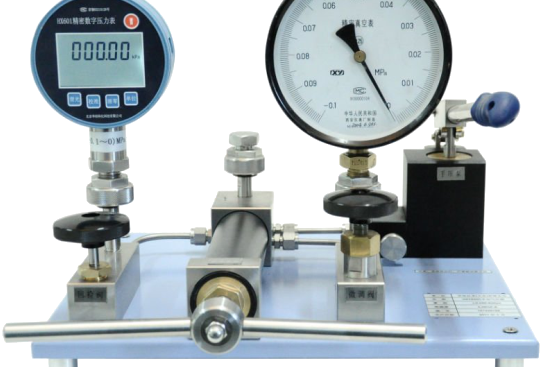Introduction
Introduce the concept of calibration, defining it as a critical process for maintaining equipment accuracy and reliability in various industries. Explain its relevance in Perth, WA, where multiple sectors—such as healthcare, mining, environmental sciences, and manufacturing—rely on precision equipment. Mention how regular calibration ensures compliance with regulatory standards, supports operational efficiency, and enhances safety.
The Importance of Calibration Across Industries Accuracy and Precision in High-Stakes Sectors
Detail how calibration ensures that equipment performs within defined accuracy ranges. Use examples such as the healthcare sector, where calibrated biomedical devices are essential for patient safety and accurate diagnosis, and environmental sciences, where precise monitoring devices are crucial for reliable data.
Regulatory Compliance and Quality Assurance
Discuss how compliance with Australian and international standards (such as ISO or industry-specific regulations) requires regular calibration. Explain the implications of failing to comply, such as legal penalties or business interruptions, and the value that consistent calibration brings to quality assurance.
Safety and Risk Management
Explore the impact of calibration on safety, particularly in hazardous industries such as mining and manufacturing, where inaccurate readings can lead to accidents. Calibration ensures that safety-related equipment (e.g., gas detectors, pressure gauges) functions reliably, reducing risks to workers.
Key Benefits of Regular Calibration Services
Cost Savings through Preventative Maintenance
Explain how calibration reduces the need for costly repairs or replacements by identifying issues early. Highlight that calibrated equipment operates efficiently, lowering energy consumption and enhancing productivity. Provide examples of industries that benefit from this, such as energy or construction.
Extended Equipment Lifespan
Discuss how calibration contributes to extending the life of equipment by ensuring it functions optimally. Regular calibration keeps wear and tear at bay and prevents irreversible damage, maximizing return on investment.
Operational Efficiency and Data Integrity
Calibration contributes to the consistency and accuracy of data, essential for decision-making. Explore how industries like laboratories, mining, and R&D facilities rely on calibrated tools for valid data collection and analysis, supporting strategic business insights.
Types of Calibration Services Available in Perth (400 words)
Biomedical Calibration
Provide an overview of calibration services for medical equipment such as ventilators, infusion pumps, and diagnostic devices. Explain how this service supports Perth’s healthcare industry by ensuring compliance with safety standards and delivering precise results crucial for patient care.
Industrial Equipment Calibration
Discuss the calibration of heavy machinery, pressure gauges, temperature sensors, and flow meters, focusing on manufacturing and industrial applications. Industrial calibration ensures safety, precision, and consistency, which are vital for Perth’s mining and resource sectors.
Environmental and Agricultural Calibration
Explore calibration services for environmental monitoring tools, including air quality monitors, water testing kits, and soil sensors. Emphasize the significance of these services for ensuring compliance with environmental regulations, especially in agriculture and resource-based industries.
Electrical and Electronic Calibration
Describe the calibration of electronic testing devices such as multimeters, oscilloscopes, and signal generators used in laboratories, R&D, and telecommunications. Accurate calibration is crucial for industries in Perth that rely on advanced electronics for precision tasks.
Choosing the Right Calibration Service Provider in Perth
Accreditation and Certification
Explain why NATA (National Association of Testing Authorities) accreditation is important, as it ensures the calibration provider meets strict international standards. Outline how businesses can check for relevant certifications before choosing a provider.
Industry-Specific Expertise
Describe the advantages of choosing a calibration provider with expertise in a specific industry. A provider experienced in healthcare or mining, for example, would understand unique equipment requirements and regulatory needs in those fields.
On-Site Calibration Services
Highlight the benefits of on-site calibration services, especially for industries using large or sensitive equipment. On-site services minimize downtime and reduce the need for equipment transportation, which is beneficial for industries like healthcare and manufacturing.
Turnaround Time and Customer Support
Discuss the importance of turnaround time and the role of responsive customer support. In fast-paced industries, quick calibration turnarounds can prevent costly delays and ensure uninterrupted workflows.
Steps in the Calibration Process
Initial Assessment and Equipment Check
Detail the initial steps in calibration, including equipment inspection and baseline measurements. Explain that this assessment helps identify any deviations from optimal performance.
Calibration and Adjustment
Outline the calibration process, where equipment is tested against a standard reference. Discuss how any necessary adjustments are made to bring the equipment within acceptable tolerance levels.
Documentation and Certification
Explain the importance of documenting calibration results and issuing certification. This documentation is often necessary for audits and helps businesses prove compliance with standards.
Ongoing Monitoring and Scheduling
Emphasize the importance of scheduling regular calibration and keeping records of past calibrations. Many companies opt for automated reminders or service agreements to ensure timely calibration.
Emerging Trends in Calibration Services
Automated Calibration Systems
Discuss how automation and IoT are transforming calibration, with systems that can self-calibrate or notify operators of calibration needs. Explain the benefits for industries in Perth looking to stay at the forefront of technology.
Digital Calibration Certificates and Records
Explore the shift towards digital record-keeping and online calibration certificates, which streamline compliance management and make it easier for businesses to access records during audits or inspections.
Sustainability in Calibration Practices
Explain how the move toward sustainable practices, such as reducing paper use in calibration records, is becoming popular. Sustainable practices are increasingly expected across industries, including those in Perth.
Conclusion
Summarize the importance of regular calibration services for businesses in Perth, highlighting their role in maintaining accuracy, compliance, and operational efficiency. Reinforce the idea that choosing a qualified calibration provider is a strategic decision that can lead to long-term savings, improved safety, and regulatory peace of mind. Encourage Perth businesses to explore their calibration needs and partner with a trusted local provider to ensure their equipment remains reliable, safe, and compliant.

